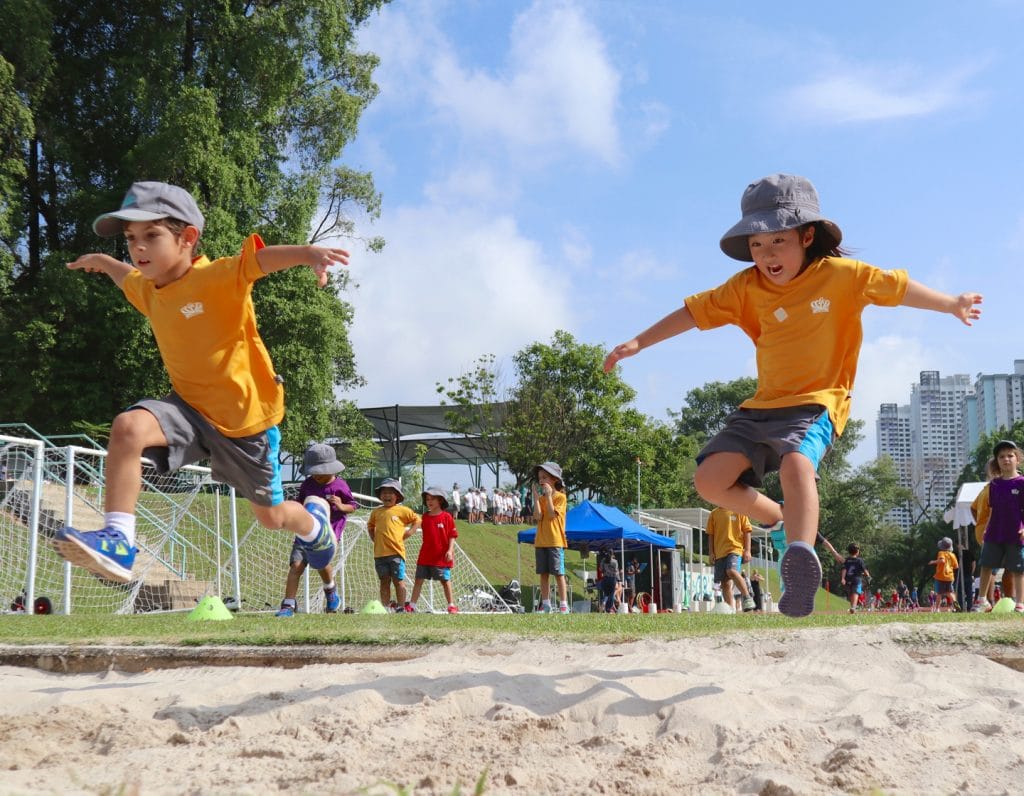

What do you look for in a school if your child has special needs and requires additional SEN support?
The approach to special education at international schools in Singapore varies significantly. With four distinct pathways tailored to each student’s individual abilities, along with a dedicated team of specialists, Dover Court International School (DCIS) is setting the standard for inclusive education. We talked to Andrew Marshall, Deputy Headteacher – Pathways and Support at DCIS, to learn more about their Special Education Needs (SEN) provision and how the school is expanding this area to cater for younger students.
What percentage of DCIS children in primary and in secondary receive SEN?
Around 10% of our school population receives support in our pathway 3 and 4 classes.
What does SEN consist of for primary students? How many students are in a group, and what special activities and support are offered?
Supportive education at Dover Court is tailored to meet each child’s individual needs. A graduated approach to support is provided across four learning pathways. The level of support is increased according to the changing needs of students.
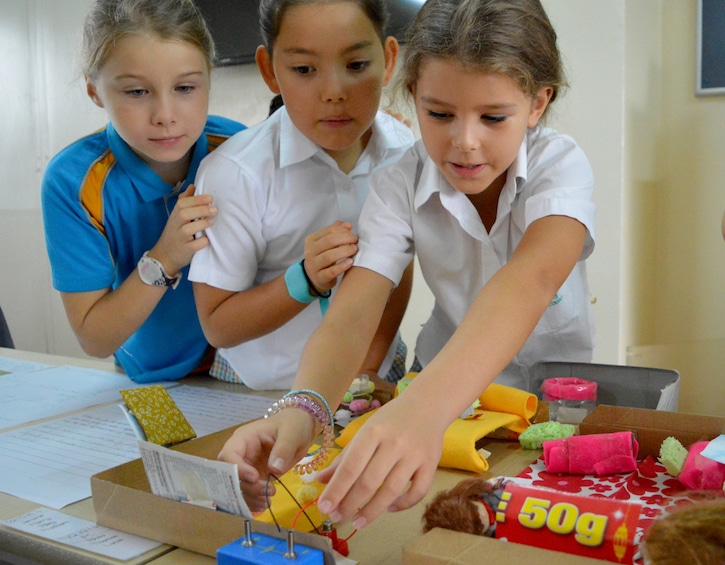

Students accessing a mainstream curriculum in pathway 1 receive support through appropriately differentiated teaching. In pathway 2, students may access support through a dedicated learning support team, which may take place in class or within specialist sessions or groups, this approach is also used for students with English as an additional language (EAL), led by specialist EAL teachers. For students that require additional support, pathway 3 offers a curriculum that is tailored with a greater ratio of teaching adults to students, 2:8.
Where more individual support is required, pathway 4 provides an individualised curriculum, focussed on delivering key academic and life skills with the highest ratio of teaching adults to students 3:8. This is also the ratio provided in our early intervention programme for students of nursery age and reception (3-4 years of age). In addition to a tailored curriculum and smaller class sizes, students are able to access a range of therapy services on site including; speech and language, occupational therapy, physiotherapy and an Educational Psychologist. We have also invested heavily in our facilities with a state of the art sensory room and therapy suite. All of our teachers within supportive education have special educational needs experience and training.
What kind of training do DCIS’s SEN teachers have?
Our teaching and support team at Dover Court are all experienced special needs professionals having worked in settings across the UK and Europe. They bring with them a significant amount of training and experience in areas including; autism, ADHD, global delay, behaviour and moderate, severe and profound learning difficulties. We also have specialists in areas including dyslexia, speech and language and early intervention.
How long has DCIS been an inclusive school?
Dover Court has always been an inclusive school. The school opened in 1972 with the aim of providing an education for all, tailored to meet the individual needs of all students. We remain strong to this philosophy today, nurturing the potential of every single student in a dynamic and challenging learning environment, which values enquiry, perseverance and reflection.
How are children with additional needs supported in secondary education at Dover Court?
Supportive education in our secondary school aims to prepare students for their next steps in education, training or employment. Our learning pathways provide the same tailored support, facilities and services as in our primary school with a focus on a personalised curriculum allowing students to access the most appropriate qualifications to meet their level of need, ranging from IB and GCSE to functional and entry English and Maths and life skills.
Learning support teachers provide targeted support in class and subject specialists with supportive education experience lead our secondary subjects. Integration into mainstream classes is carefully managed so that students socialise and learn with their peers. Alongside this support we provide a range of access arrangements and adaptions to support students through their studies, these include; time extension in examinations, examination scribes and adaptive technologies to support access to learning.
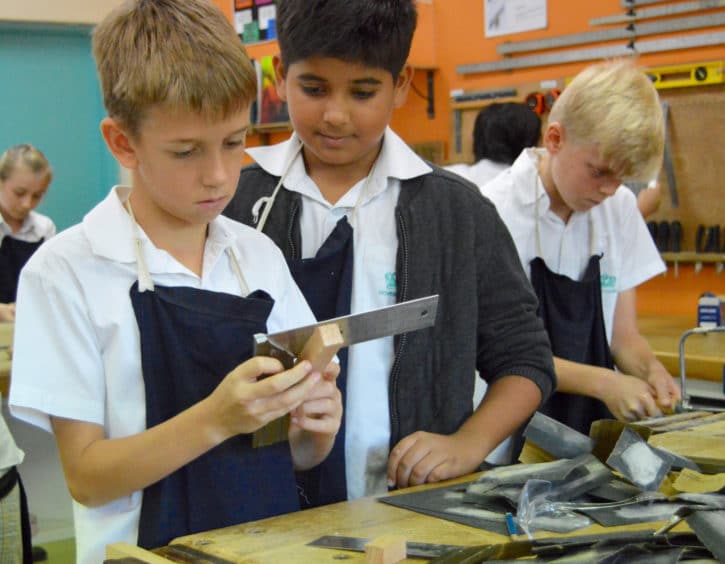

Are SEN classes integrated with mainstream in some areas, or not?
Yes, the focus of our approach is to support integration to achieve inclusion in all our programmes. Careful consideration is given to academic progress alongside social and communication skills development to assess suitability for integration. Our focus is to build self-esteem and develop confidence to enable students to be happy and successful learners. Our environment and timetables are thoughtfully designed to ensure that twinning of smaller and mainstream classes takes place across the school day. Specialist non-academic subjects including: music, physical education and IT take place together so that students integrate with their mainstream peers. In addition, teachers work in year group teams and identify opportunities for social integration to support the development of social and communication skills for our students that require it.
How are life skills and social skills developed at Dover Court?
Social, communication and life skills are important elements of our curriculum and support programme at Dover Court. We have a comprehensive


Do you encourage any buddying up of mainstream students and students with special needs to help inclusion? Talk us through this if so.
We use a range of strategies to support transition into mainstream to support inclusion for students in our smaller classes. In addition to twinning of classes and joint timetabling, we also incorporate strategies including a circle of friends and buddying. These simple tools help to build friendship groups for our students with additional learning needs, building their confidence to play and work with other children across the school. Their circle of friends helps children to become familiar with new situations and groups, building confidence and self-esteem. They become familiar friends who students can turn to help them in various situations across school. They are also given specific tasks to help with for example; purchasing their lunch, supporting them to meet new friends and helping them to make transitions across the school day.
Tell us how DCIS is doing things differently?
Inclusion is our motivation for learning pathways. They are designed to ensure that students are able to succeed both academically and socially. We achieve inclusion through carefully structured integration and twinning opportunities. In pathway 3, we twin classes with pathway 1 classes during less academic subjects, so that students are able to socialise, communicate and learn with their peers. Integration for individual students takes place in the same way in pathways 3 and 4 in more challenging academic subjects. Where students are more independent, this may lead to a carefully planned transfer. In addition, each class within our learning pathways are twinned with a mainstream class for events such as assemblies, field trips, sports days, concerts, and various social activities. The environment at Dover Court belongs to every child, all our students play, eat and socialise together. For students that find socialising challenging, we adapt the environment to meet their needs, including; quiet zones, deployment of support staff and carefully adapted timetabling. Our learning pathways ensure that students receive the most appropriate support for their level of need, in an environment that supports effective inclusion rather than simply including a student within a specific class.
Thanks Andrew, pleasure chatting with you! For more info on DCIS and their SEN programme please register your enquiry here, or contact Admissions by telephone (+ 65) 6775 7664 or by email admissions@dovercourt.
Dover Court International School, 301 Dover Road, 139644 Singapore, Te: (+65) 67757664, www.nordangliaeducation.com/our-schools/singapore





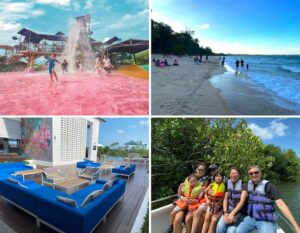
 View All
View All



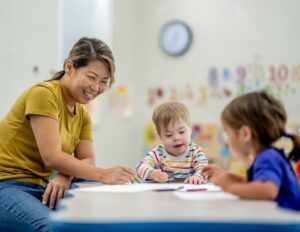

 View All
View All




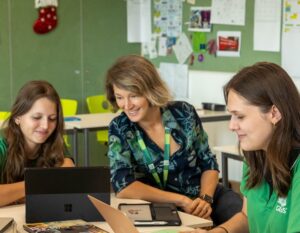


 View All
View All




